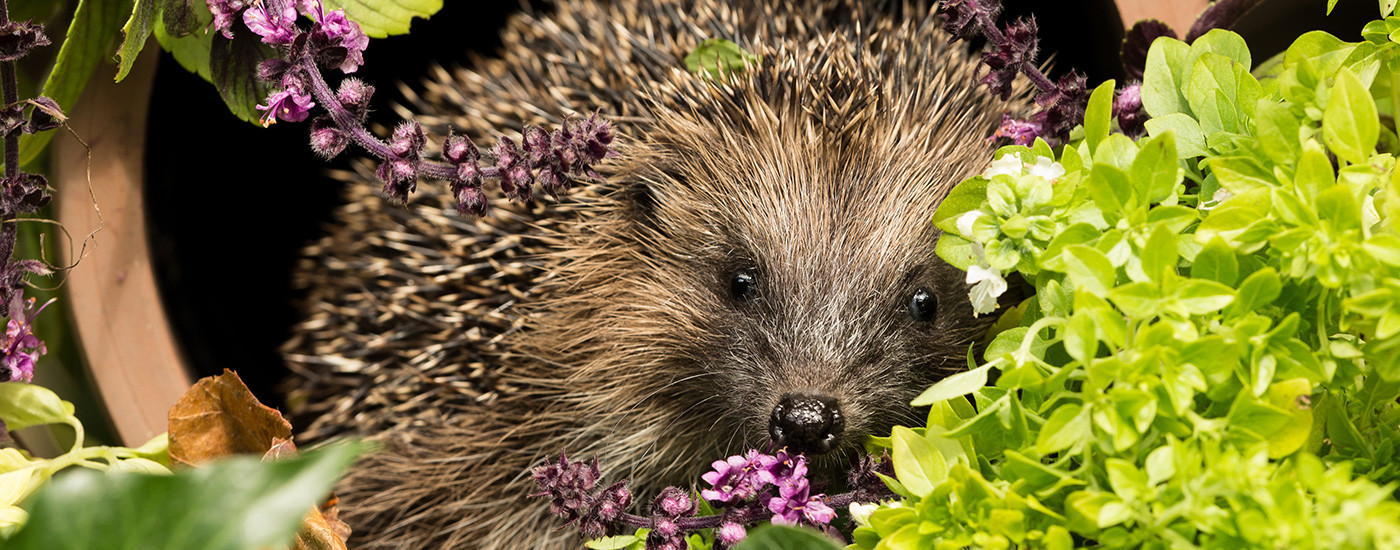According to the World Wildlife Fund, “the UK is one of the most nature-depleted countries in the world” but the good news is that every one of us, whether we have acres of garden or a small balcony, can do something to encourage birds, mammals and insects back into our outdoor spaces. As with us, wildlife needs four fundamental things to survive – food, water, shelter and somewhere to breed.
Feed the birds
Providing a variety of feed for local birds will encourage them into the garden and support the local bird population. With a third of our native birds now threatened with extinction, focusing your efforts in times of extreme weather such as dry or cold periods, can really help bird populations to thrive. Our range of bird tables provides birds with a safe place to feed, so it is important to ensure they have safe passage through gardens.
Become hedgehog friendly
The population of our beloved Mrs. Tiggy-Winkle has declined by 98% in the last 70 years and it is vital we help them if they are to survive. An adult hedgehog can cover a distance of 2km a night when looking for food, with a male travelling even further during mating season, so work with your neighbours to ensure they have safe passage from one garden to the next. Swap concrete gravel boards for sustainable timber gravel boards with a small hole no larger than 6”x6” cut out to help them pass through easily.
Create living habitats
A compost heap is a magnificent living habitat that will attract worms and other invertebrates such as insects, spiders and centipedes, as well as fungi and soil bacteria. Other cold-blooded creatures like slow worms may be attracted by the heat from the compost and visit your garden. Our blog ‘What are the benefits of composting?’ explains everything you need to know to create a compost heap and tells you what you can put in your composter.
Provide wildlife housing
All creatures need shelter to protect against weather and predators during periods of rest, hibernation and breeding. The types of housing that these creatures use in the wild – hollow trees, dense shrubs, naturally occurring cavities in the ground – are missing from the modern suburban landscape but there are steps we can take to re-introduce them into our gardens, including building a bee hotel.
Install a bee hotel
Not all bees occupy hives or live in big groups; there are many that reside in small spaces in the garden where they can lay their eggs in safety. The larvae that hatch from the eggs use the safety of the bee hotel to grow over the winter. Our wooden fence rails are perfect to construct a bee hotel, as they are sustainably sourced and the RSPB have great instructions to build your own bee hotel.
Encourage breeding
Providing a shelter where it is safe for nesting birds is vital to protect our domestic bird population. Choose from our selection of sustainable wooden rails to build your own sparrow box so your local birds can have a safe roosting and nesting site. Cultivating climbing plants, trained against a trellis, will also provide shelter for birds.
Growing climbing plants against a wall is a great way to provide extra shelter for birds, and will provide them with additional roosting and breeding sites. Heaven for small animals and insects, your climbers can be trained against trellis to give them support.
Encourage pollinators
Flowering plants and shrubs provide nectar-rich food for butterflies, bees and other pollinators. Plants that flower and seed at various times will offer a steady food source for animals and insects that feed in different periods throughout the year. Our range of timber planters has a wide selection of attractive planters that will accommodate your miniature trees, climbers and bedding plants! A small outdoor space does not have to be prohibitive to wildlife either; planting vertically and installing window boxes will enable you to attract pollinators into your space.

